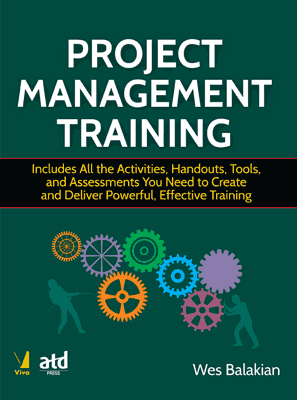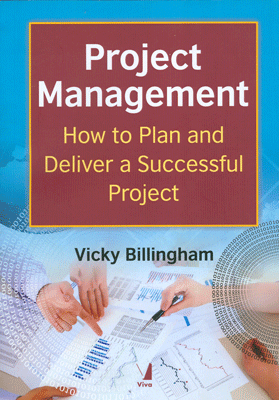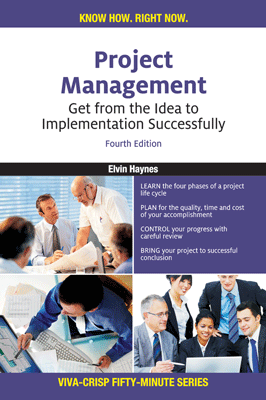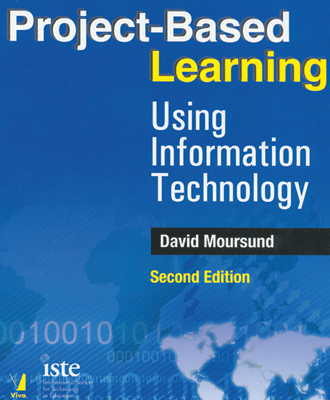Management Briefs: Project Management
Management Briefs: Project Management
A Practical Guide
₹225.00 ₹250.00 Save: ₹25.00 (10%)
Go to cartISBN: 9788130930688
Bind: Paperback
Year: 2015
Pages: 104
Size: 6 x 9 Inch
Publisher: Mosaic Press
Published in India by: Viva Books
Exclusive Distributors: Viva Books
Sales Territory: India, Nepal, Pakistan, Bangladesh, Sri Lanka
Reviews:
"A wonderfully clear and succinct guide for any busy executive planning a significant business project.'
Chairman, Irish Management Institute
'A wonderful guide for the busy manager, it is a simple but not simplistic book that will guide the reader to project success.'
—Prof. Mary Rose Greville
Brendan McDonald Professor of Leadership School of Business, Trinity College Dublin
"A well-structured guide to project management: short, sharp, and above all practical. It is a much-needed primer for anybody attempting a project of any size."
—Vincent Dooley
MBA Director, School of Business, Trinity College Dublin
"A fine blend of theory and practice, with plenty of examples, easily accessed."
—Corrnac Callaghan
MD of Primecore, Landscape House Baldonnell Business Park, Baldonnell, Co. Dublin
"The authors of this compact and user-friendly volume, combine a straightforward outline of basic principles with a practical approach to application and implementation that provides a no nonsense guide to project management in the real world. I have no doubt that it will prove a valuable foundation for managers and leaders involved in this critical field."
—Dr Louis Brennan
Associate Professor of Business Studies School of Business, Trinity College Dublin
Contents:
Chapter 1: Understanding Project Management • What is a Project? • The Project Life Cycle - The Four Phases of a Project • Phase 1: Getting Started - Concept, Initiation, Feasibility and Inception • Phase 2: Detailed Planning • Phase 3: Implementation, Monitoring, Control and Closure • Phase 4: Completion • Deciding the Type of Project and the Approach Required • Assessing Project Manager Authority • Assessing the Organisation's Project Capability • Achieving Project Success
Chapter 2: Phase 1 - Getting Started • Developing the Initial Brief • Developing the Project Concept • Phase 1 - Initial phase - Kick-off Meeting Agenda • Dealing with the Classic Triple Constraints • Handling the Initial Request to Manage the Project • Generating Potential Solutions • Performing a Feasibility Analysis
Chapter 3: Phase 2 - Developing the Project Plan • Phase 2 - Starting the Detailed Planning - Work Breakdown Structure • Work Breakdown Structure - Example • Estimating Task Duration and Effort Required • The Uncertainty of Estimates • Scheduling the Sequence of Tasks • Building the Activity Network Diagram • Identifying the Critical Path through the Project • Optimising the Schedule • Allocating Resources in the Plan • Identifying and Relieving the Project Bottlenecks
Chapter 4: Managing Risk ? Risk Management Steps • Types of Risk • Risk Impact / Probability Matrix • Managing Risk. Opportunity and Value • Classic Flaws in Organisations • Blindness to Habitual Risk
Chapter 5: Phase 3 - Implementing the Plan • Use the Agreed Baseline to Monitor and Control the Project • Monitoring the Project Plan • Project Control • Change Control and Management • Common Human Factors in Planning and Execution • Student Syndrome and the use of Time Buffers • Use Deadlines and ?Birthlines? to drive behaviour • Plan tasks as Discrete. Deliverable Blocks of work with Observable Outcomes
Chapter 6: Building an Effective Project Team • Introduction to Team Building • Making Teams Effective - • The Fundamentals • Team Development - How to form an Effective Project Team • Stages in Team Development • Dealing with changes over the course of the Project • Developing the Mission Statement • Team Guidelines • Sustaining Commitment over the life of the Project
Chapter 7: Leading an Effective Project Team • The Nature of Team Leadership • Leadership for High Performance • Encouraging High Performance • Leadership in Practice - Making Meetings Effective • Delegated roles for Project Team Meetings • Disruptive Behaviour at Meetings • Managing Individual Team Members
Chapter 8: Managing Stakeholders • Key steps in Managing Stakeholders • Classifying Stakeholders • Identifying Stakeholder Groups • Assessing Stakeholder Interest and Activism • Recognising different Stakeholder Types based on Power Legitimacy and Urgency • Mapping Stakeholder Resistance • Dealing with Irrational Stakeholder Activity • Managing ?Needs? and ?Wants? • Role of the Sponsor • Exploring Scope, Expressed Needs and Latent Desires • Success and Failure: Managing Reality & Perception • Delivering Bad News on a Project • Delivering Good News on a Project
Chapter 9: Managing Costs • Recognising Distortions that affect Project Cost Accounting • Developing a System to Track and Control Costs • Using the Earned Value System to understand Actual Costs and Progress • Recovering Project Cost Over-spend • Noting early Cost Discrepancies and their Causes • Managing Risks by Developing Contingency Plans and Budgets
Chapter 10: Project Review - Capturing the Learning • Completing the Project • Planning the Project Review • Developing Team and Individual Learning Capability • Developing a Learning Cycle: the Power of Reflection and Feedback • Developing Real and Meaningful Dialogue • Deepening the Learning Cycle • Making Conversations Real and Meaningful • Reflection Stages
About the Authors:
Dermot Duff is a qualified Electronics Engineer and he has been involved in projects within the Telecommunications and IT industries in many countries. Dermot specialises in continuous and radical improvement systems and he is already published in the area of Strategic Cost Reduction and operational excellence.
John Quilliam is a Lecturer at Trinity College Dublin where he is Programme Director of a number of Masters Programmes. Prior to joining Trinity he has had many years experience in line management and Human Resource Management, principally with the Electricity Supply Board.





